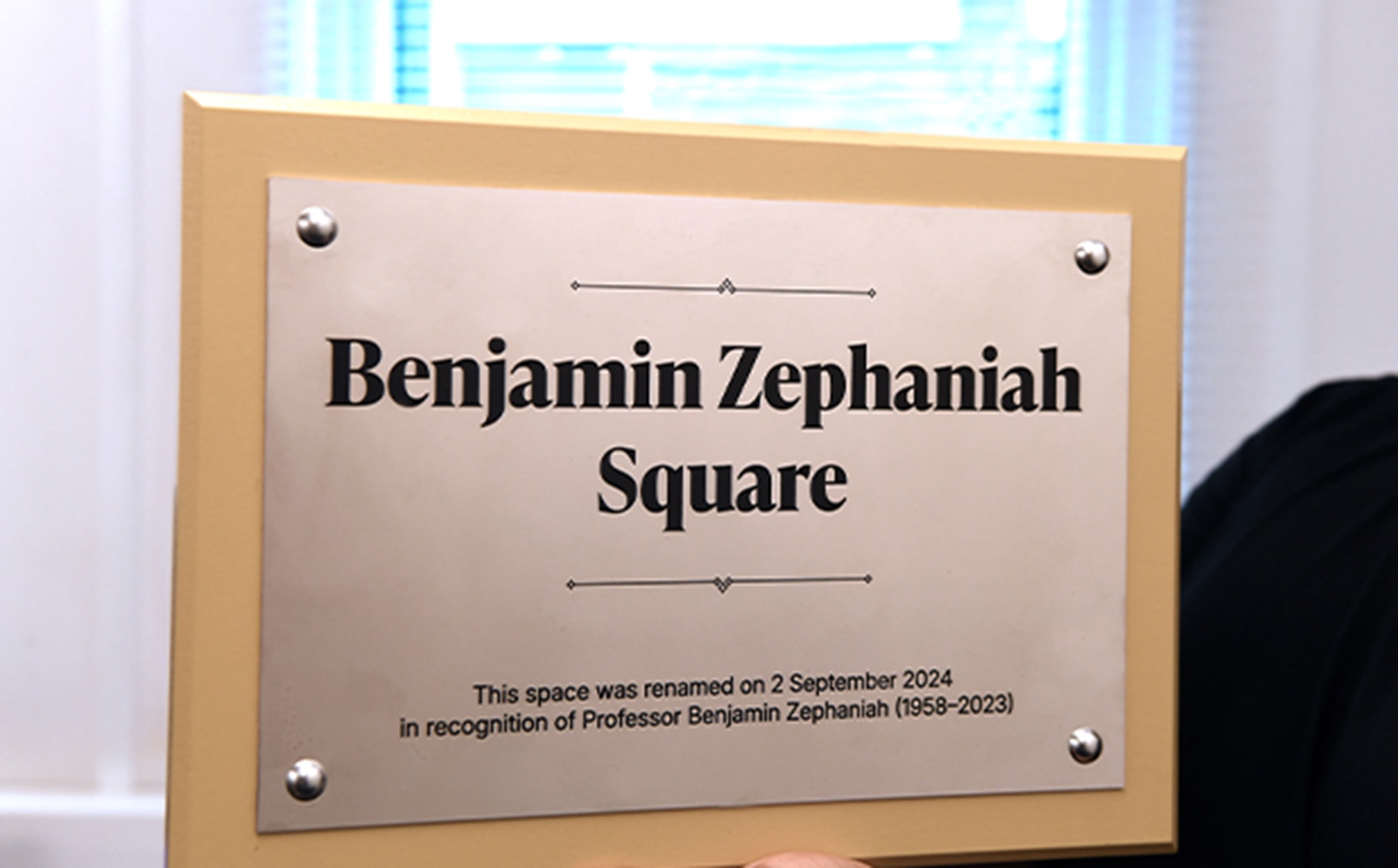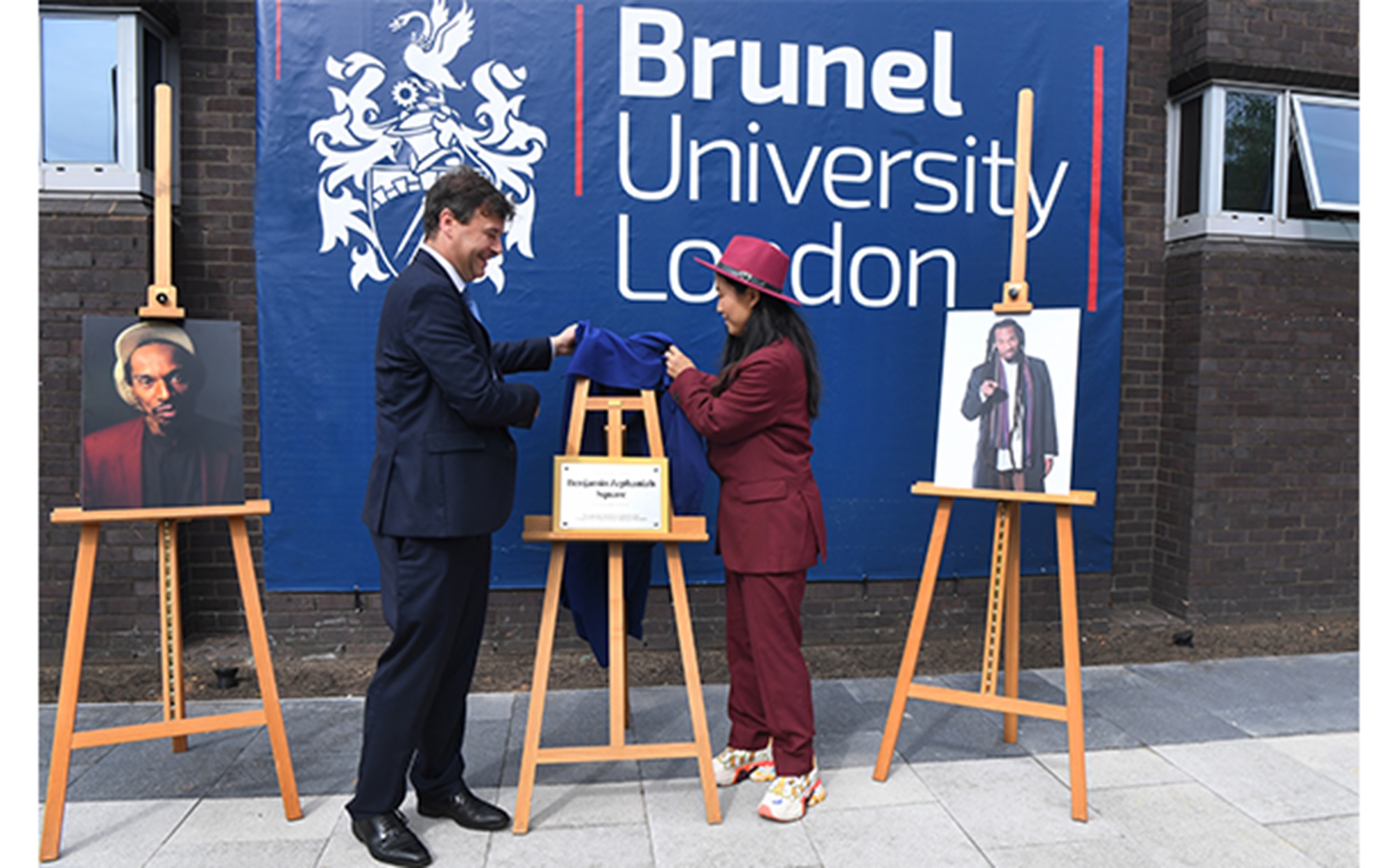A plaque paying tribute to writer, actor and musician Benjamin Zephaniah has been unveiled by Brunel University London.
The dub poet, who appeared in hit BBC show Peaky Blinders as Jeremiah Jesus, died at the age of 65 in December 2023, shortly after being diagnosed with a brain tumour.
The newly unveiled plaque has been placed in the university’s redeveloped outdoor community space, the Quad, now renamed Benjamin Zephaniah Square.
“In that role, he brought his unique voice, his commitment to social justice and his belief in the power of words to inspire change.
“His job, as he saw it, was to share his knowledge and to help our students to find their own voices.
“To Benjamin’s family and friends, thank you for sharing him with us. I hope you can see that his impact here at Brunel is immeasurable.
“As we unveil this plaque, we celebrate Benjamin’s extraordinary contributions, not only to literature and education but also to the causes he championed throughout his life.”

The poet’s widow, Qian Zephaniah, attended the event with family and friends and read from his poem People Need People, taken from his children’s picture book which won the Queen’s Knickers Award earlier this year.
Authors Bernardine Evaristo and Hannah Lowe, from Brunel’s creative writing department, also paid tribute to their former colleague.
Booker Prize-winner Evaristo introduced an anthology of poetry and prose titled Borderless, recently published by Brunel creative writing students and graduates in tribute to their professor.
The anthology features emerging writers and covers themes to do with belonging, home and environmentalism.

Zephaniah’s first writings used dub poetry, a Jamaican style of work which evolved into the music genre of the same name.
The Birmingham-born poet was nominated for autobiography of the year at the National Book Awards for The Life And Rhymes Of Benjamin Zephaniah, and the work was also shortlisted for the Costa Book Award in 2018.
The writer, who rejected an OBE in 2003 due to the association with the British Empire and its history of slavery, was often outspoken on racial abuse and education.






